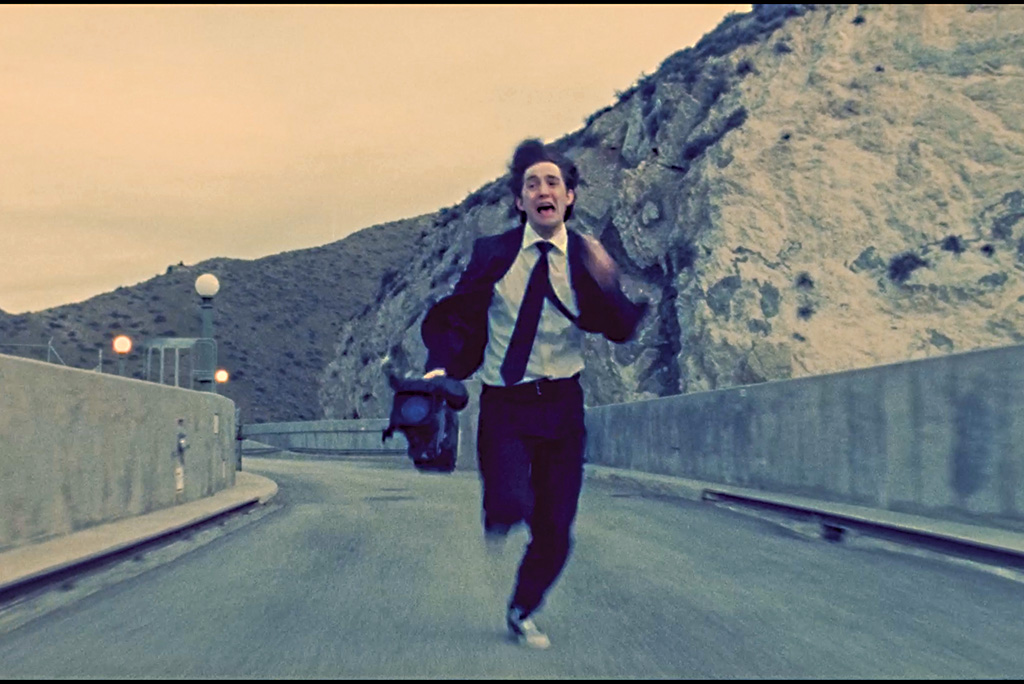The short film “Meridian” screened at the Sun Valley Film Festival in March and struck a chord with audiences, with its intertwining tales of remorse, revenge, and acceptance as seen through the lens of climate change. Winner of the Gem State award, “Meridian” is the passion project of Emmy-winning writer and director, Aidan Brezonick, who set out to show that climate change isn’t political, but rather, has been politicized.
“There’s a lot of frustration and spin around the topic when, in reality, we’re all fighting for the same thing,” says Brezonick. “Everyone wants their kids to grow up and experience the outdoors. That sentiment was drilled into me, growing up in Idaho. We live in one of the most beautiful, untouched spaces in the country, and we all want to preserve that.”
Growing up in Boise, Brezonick—whose work has appeared on Rolling Stone, NPR, NBC, MTV, IFC, and the Sundance Channel—credits a great video production class in high school, that “kinda let me do whatever I wanted,” for lighting a creative spark within. Years later, during film school in Chicago, a parent point-blank asked him if we had movies in Idaho, “any movies.” “It was a small moment, but, as a kid, it felt pretty traumatizing. Nationally, we were identified as the Napolean Dynamite state, and I took immense issue with that — nothing against Jared Hess’ great movie. I wanted to get as far away from that label as fast as I could, but life had other plans, and I found myself drawn to Idaho narratives.” He eventually doubled down and said, “If people aren’t going to acknowledge Idaho as the amazing place it is, well then, I would make films that showcased just how much history and culture we have.”
Brezonick’s next project does just that, putting Idaho squarely in the spotlight in a neo-noir Western feature entitled “Mirage,” with production slated for late 2022. “Our not-so-subtle goal is to make ‘The Greatest Idaho Film That Ever Was.’ Sure, there’s a history of film production within the state, but the stories have never been about Idaho.”
Set in 2008, “Mirage” follows a young local news videographer named Dean, loosely modeled after Brezonick’s time working at KTVB in high school. There’s a duality to the narrative. Dean is working on a piece for the state anniversary celebration, and there’s a big event planned. “Think of the 4th of July celebration in Jaws,” says Brezonick. In preparation for the event, he’s tasked with traversing the state, interviewing locals about what makes Idaho great. Meanwhile, a reclusive billionaire makes the largest land grab in state history and sets into motion a chain of events that lead Dean down some dark paths. He begins to realize how much change has occurred because of this billionaire land buy and the influx of new residents from out of state, how it’s affected local livelihood, the environment, and in, turn Dean. For that part of the movie, the cast and crew will be spending several weeks traveling the state, shooting everywhere from Sun Valley to Sandpoint and looping back to Boise. “Our goal is to shoot as many historical landmarks as possible that feel natural to the narrative,” says Brezonick.

Dean speaks with his surrogate father figure/boss at the El Korah Diner.
“I get a lot of inspiration from Robert Altman and Paul Thomas Anderson films, sweeping narratives with large ensemble casts,” says Brezonick. “’Mirage” is an Idaho story, so we wanted to finance with people who live here and have a stake in these narratives firsthand. We’re currently in talks with some extremely talented actors, who I’m not allowed to name, or my producer will yell at me. Our hope is that we can show what major production can do here. Putting those funds back into the community in as many ways possible — and eventually get some production tax credits started. Idaho has the same potential as Chicago, Atlanta, and New Orleans. We want this to be a case study for future productions.”
The timing of “Mirage” is no coincidence. Idaho has experienced seismic shifts in population and affordability over the past few years, growth that Brezonick feels has been extremely divisive. “I try to keep politics out of my films and focus on the characters/people that are affected, but I keep coming back to the line: ‘If you can’t afford to live in Idaho, where can you?’” says Brezonick. “I grew up with a split childhood. Living in the historic North End of Boise with my father, while my mom had the first house on the block in a new subdivision of Eagle; feeling trapped between the tradition of preserving things as they are, and the natural change and expansion that happens to a place over time. In a lot of ways, I feel like I was made to tell this story.”


